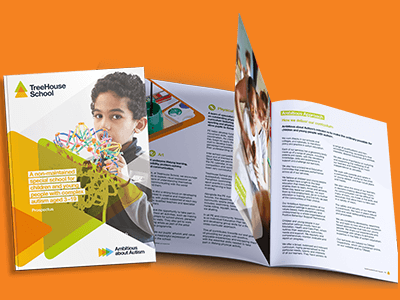
It is critical that our pupils have a voice and a choice in how they learn. We have a number of ways of listening creatively to our pupils and hearing what they want to tell us about school life.
Strategies that will help me advocate for myself
The following strategies can be used by pupils to advocate for themselves. These are separated into three categories: pre-formal, semi-formal, and formal.
Pre-formal
- I can show what I like by pointing or looking at something.
- I can choose from a range of simple tangible options.
- I can express my choices through my personalised style of response.
- I can point, gesture, or make sounds to express myself.
- I can use my facial expressions, body language, and/or gestures to show when I am happy.
- I can use my facial expressions, body language, and/or gestures to show when I am unhappy.
- I can move away or look away from stimuli if I do not like it.
- Adults that know me well can tell you what is important for me and to me.
- Attend to activities of my own choosing and, with support, engage in short, highly motivating adult-led activities.
- Engage in mark-making activities, copy lines, and simple shapes.
Semi-formal
- I can use words and short sentences /simple language to express how I feel in basic terms.
- I can express myself using my preferred communication method. (core vocabulary board, PECS, Makaton, communication device, or written).
- I can use my body language to express how I feel.
- I can choose from a range of simple options presented in a way that meets my communication preference.
- I can express what is important to me.
- I can express yes and no to choices or concepts.
Formal
- I can express myself using a communication method of my choice.
- I can write down how I feel, my preferences, and my thoughts.
- I can express complex thoughts and feelings.
- I can express my feelings about past, present, and future events.
- I can clearly express yes or no and give reasons behind my decisions.
- I can make informed choices.
Pupil Voice in annual reviews
The following points can be helpful for pupils in annual reviews. These are separated into three categories: pre-formal, semi-formal, and formal.
Pre-formal
- Adults that know me well can tell you what is important for me and to me, this may include:
- my teachers
- my key worker
- my advocate
- my parents or carers
- my social worker
- I may find it difficult to understand the content of the conversation in my annual review.
- I may not understand why people from home and school are in one room together.
- I may or may not want to attend my annual review.
Semi-formal
- I can understand simple language and simple concepts. If I understand, I can give you my opinion on what I like/dislike and what is important to me in my life.
- I would benefit from using social stories to understand more complex thoughts and ideas.
- I would benefit from having my chosen communication aid (PECS, Makaton, etc) to support me to express myself.
- Adults that know me well can support me to express what is important to me in my life.
- I may or may not want to attend my annual review.
Formal
- I can generally express myself through words and sentences or my preferred communication aid.
- I can express what is important to me in my life.
- I can express how I feel about different aspects of my home and school life.
- I can express what my aspirations are for my future.
- I can express if I am not happy about something in my life.
- I can give my opinion on the options presented to me.
- I may benefit from an adult I know well to prompt me if I forget something.
- I may or may not want to attend my annual review depending on how I am feeling.


